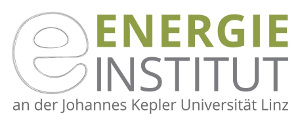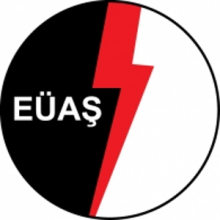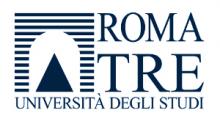Energy Institute at the Johannes Kepler University Linz

The Energy Institute at the Johannes Kepler University Linz is a not for profit research organization, whose multidisciplinary knowledge of more than one scientific field is essential for energy-related research topics. The Energy Institute’s three departments cover Energy Economics, Energy Law and Energy Technologies. Only the combination of these core disciplines allows comprehensive analyses and accounts for all aspects of future-oriented energy topics. We analyse the economic effects of questions regarding energy-related policy, discuss the most recent developments in the European energy legislation and evaluate strategies for CO2 abatement schemes as well as measures aimed at promoting energy efficiency goals. The Energy Institute at the Johannes Kepler University Linz is deeply rooted in the Austrian research community, publishes in high level journals and possesses experience of four European research projects in the 7th framework programme and Horizon2020 (PEAKapp #695945, SESAME FP7 #261696, SPARKS FP7 #608224, SunLiquid #322386, ChiBio #289284,and ECHOES #727470).
EI-JKU is a not for profit research organisation, whose multidisciplinary knowledge of more than one scientific field is essential for energy-related research topics. Our institute’s three departments cover Energy Economics, Energy Law and Energy Technologies. Only the combination of these core disciplines allows comprehensive analyses and accounts for all aspects of future-oriented energy topics. We analyse the economic effects of questions regarding energy-related policy, discuss the most recent developments in the European energy legislation and evaluate strategies for CO2 abatement schemes as well as measures aimed at promoting energy efficiency goals. EI-JKU is deeply rooted in the Austrian research community, publishes in high level journals and possesses experience of four European research projects in the 7th framework programme (SESAME,SPARKS, SunLiquid and ChiBio) and in Horizon 2020 (PEAKapp, Store-and-go and ECHOES).
Department of Energy Economics of the EI-JKU has extensive experience in energy efficiency projects, with the European approaches towards supply security and with socio-economic research regarding people’s perception of new technologies in the field of energy provision. An outstanding survey emphasizing the individual valuation of power supply security, the assessment of energy-related preference structure as well as potential interactions between households and utilities was conducted amongst more than 8,300 households in each of the 27 EU member states (EU27 as of 2012). The availability of this data set, combined with the excellent econometric skills available at EI-JKU, allows deriving unprecedented insights in the driving factors of peoples’ security preferences. Furthermore, a recent example of the dissemination activities carried out by Energy Institute was a workshop they organized in the facility of DG Home Affairs in Brussels on the security of the European power grid. The workshop was attended by experts from politics, grid operators, grid manufacturers, delegates of national security agencies and scientists from all over Europe.
Department of Energy Technologies of the EI-JKU is a key stakeholder in international and various national applied research projects concerning Life Cycle Assessment of bio-refinery concepts and new production technologies. The comprehensive systemic and ecological and economic analysis of the PtG technology on the national but also international level is currently one of the priorities of the EI-JKU. The practical applicability of our efforts is always an indispensable focus of the EI-JKU and the scientific results of multiple projects and studies conducted by the EI-JKU have been the driving force for a high number of innovative solutions in the renewables business (demonstration plant for the production of green chemicals from grass silage, Research Studio Austria OptFuel).
Department of Energy Law of the EI-JKU has comprehensive knowledge in the area of energy law research. Noteworthy projects in this area include EU funded research such as SPARKS (Smart Grids Protection Against cybeR attacKS; grant #608224 ) and PEAKapp (Personal Energy Administration Kiosk application; grant #695945). Furthermore, the Department of Energy Law has recently analysed issues related to data protection and privacy in the energy environment, in particular issues related to the handling of data gathered through smart metering of energy consumption data. In addition, the Department is analysing the recently implemented Network and Information Security Directive of the European Commission to identify their application in the energy sector.
















